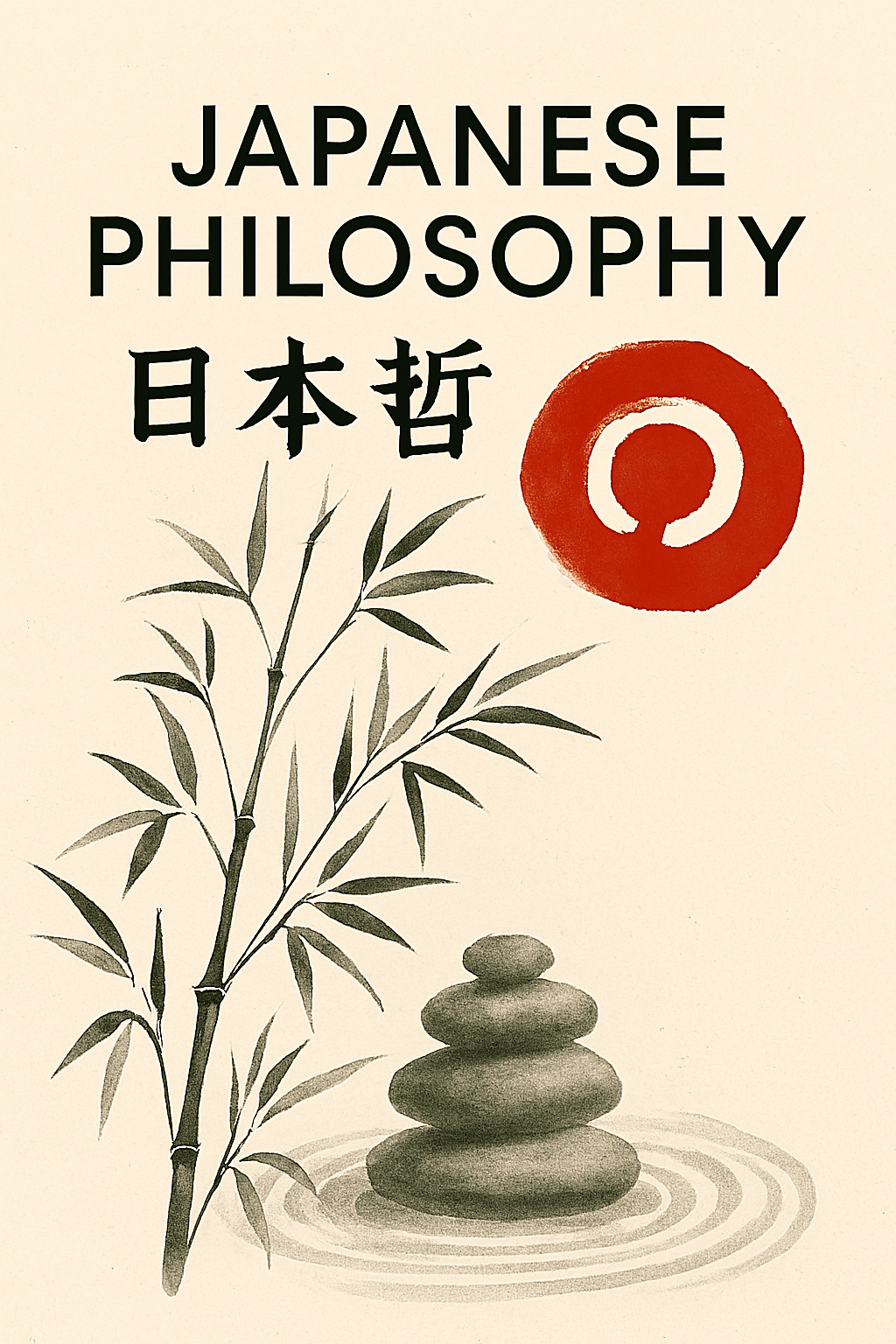

| What is Japanese Philosophy |
| Sources of Japanese Philosophy |
| The basic themes of Japanese Philosophy |
| Modern Japanese Philosophy (post-1868) |
| The Kyoto School |
| Japanese Philosophers |


The term philosophy was translated in Japanese as "tetsugaku". According to Michiko Yusa,
The Japanese word "tetsugaku" was coined by Nishi Amane (1829-97), who, even before the end of the Tokugawa Shogunate rule (1603-1867), was dispatched to the University of Leyden in 1863, where he studied philosophy. (Yusa,"the Bloomsbury Research Handbook of Contemporary Japanese Philosophy", Introduction, P.2)Generally speaking, according to Brian Bocking,
'Japanese philosophy' can be understood in a narrow sense as intellectual analysis conducted by particular Japanese philosophers, and in a much broader sense as worldviews or approaches to life which are characteristic of the Japanese people and which have provided the context and motivation for philosophical and other intellectual endeavors in Japan. (Brian Bocking, 'the Origins of Japanese Philosophy' p.641)Michiko Yusa introduces a detailed description of these two positions as follows,
With a bold stroke, the diverse views concerning Japanese philosophy presented above can be grouped into two. The first is what may be called an "import" theory, which upholds that philosophy is a Western discipline (or Greek origin) and that it did not exist in Japan prior to its introduction in the 1860s by Nishi Amane et al. The second is a non-Eurocentric view that considers a philosophical tradition to exist in all cultures of the world, based on the assumption that there is philosophy where a people have nurtured their own worldviews and grappled with the meaning of life. According to this latter position, which may be called an "indigenous" view of philosophy, diverse philosophical traditions have been in existence everywhere, and in Japan at least since the seventh century, philosophical ideas have been formed under the nurturing influences of Buddhism, Confucianism, philosophical Daoism, Legalism, and a native Japanese sensitivity to natural, cultural, aesthetic, and ethical elements (a sensitivity that may be called the tradition of "proto-Shinto" or "ko-shinto"). According to this view, the introduction of the Western philosophical discipline in the nineteenth century shed new light on the wealth of existent indigenous philosophical thoughts, and critically brought out their relevance—and sometimes even formed a deeper backdrop for a new philosophical approach.In addition, Yusa points out that,
Among those who upheld the second view, namely, that philosophy is indigenous to each culture, Nishida Kitaro stands out as the first articulate proponent of this view. His writings are the testimony of philosophizing that was taking place in Japan, and give us the view of Japanese philosophy "from within".Similarly, John Maraldo confirms Yusa's picture as follows,
The appellation 'Japanese philosophy' is problematic in several senses. Many philosophers regard philosophy as a Western discipline imported into Japan a little over a century ago, and to this day restrict the term to investigations whose theme or method originates in the Western tradition. 'Japanese philosophy' in that case simply means Western philosophy as it is pursued in Japan. Others may apply the term to philosophically informed enquiries into pre-modern ('pre-philosophical') Japanese traditions. And some use the term to refer to pre-modern Japanese Confucianism, Buddhism, or other schools of thought; or again to contemporary treatises inspired by Eastern as well as Western sources. In the latter cases, the question arises as to what is 'Japanese' about past or contemporary thinking in Japan. In the former usage, which restricts 'philosophy' to an originally Western discipline, a similar question is raised about what is original in the work of philosophers in Japan; but the more important problem is the purported universality of a method of enquiry with Greek origins. (John C. Maraldo, 'Contemporary Japanese Philosophy', p.737).Given the above picture, Bert Davis suggests that,
We call Japanese philosophy any rigorous reflection on fundamental questions that draws sufficiently and significantly on the intellectual, linguistic, cultural, religious, literary, and artistic sources of the Japanese tradition. Japanese philosophy is thus mainly only a subset of philosophy done in Japan since much of the philosophizing done in Japan today does not sufficiently or significantly draw on these sources, albeit precisely what counts as "sufficient and significant" should remain open for debate, just as should the parameters of what counts as part of the Japanese tradition. (Bert Davis, "Introduction-the Oxford Handbook of Japanese Philosophy").
Internet Resources
The International Association of Japanese Philosophy
European Network of Japanese Philosophy
Readings
Introduction - Contemporary Japanese Philosophy - Michiko Yusa
What Is Japanese Philosophy - Bret Davis
Edited By: Samir Abuzaid